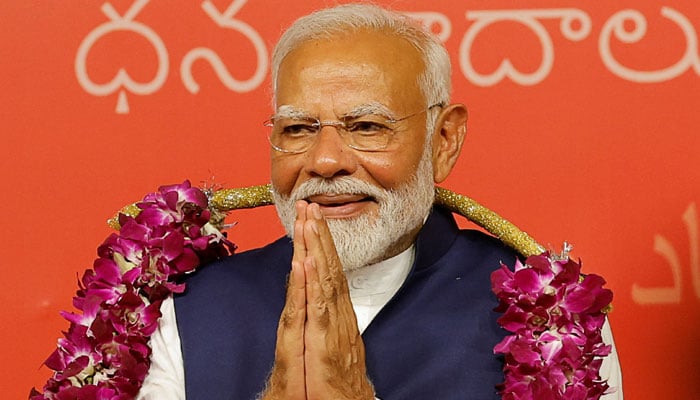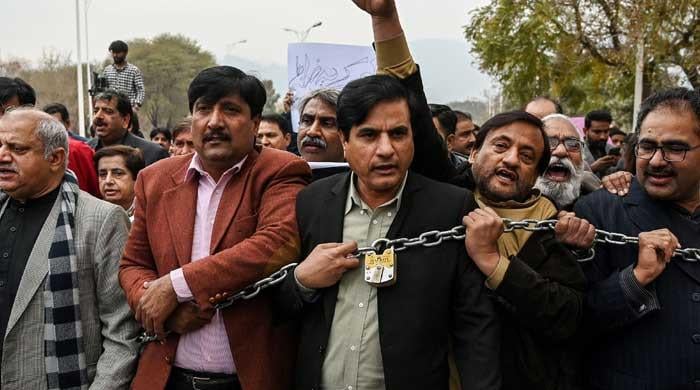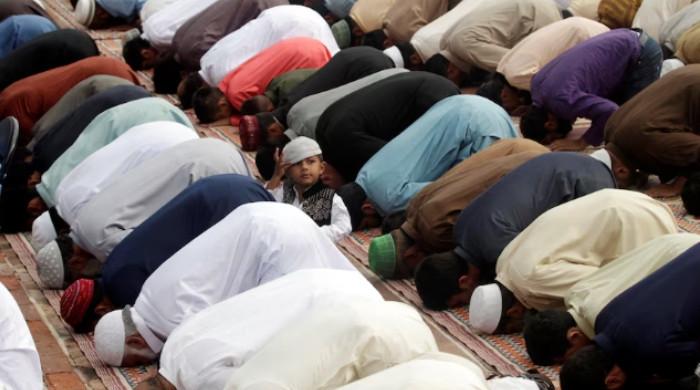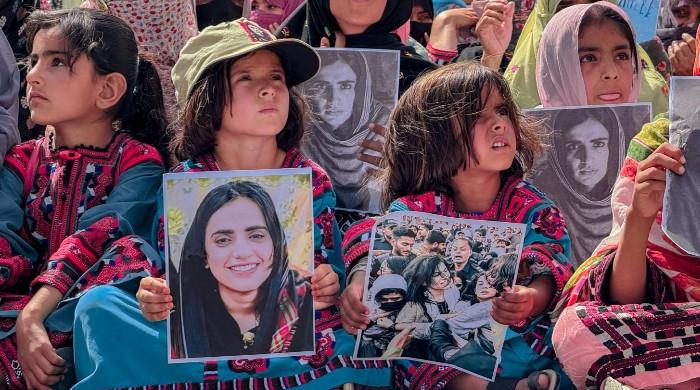Modi's magic fizzles: voters prefer jobs to jibes
Results show exit polls were complete sham or at least an echo chamber meant to foster belief in BJP’s invincibility
June 05, 2024

THE world’s largest democracy has spoken — and its verdict does not bode well for Narendra Modi. While he is poised for a third term in office, the performance of the Bharatiya Janata Party (BJP)-led alliance has fallen short of its own goal of winning more than 400 seats.
Defying all exit polls and pre-election predictions, preliminary results show that the BJP-led alliance is just under 300 seats, while opposition parties are ahead in about 230 seats. What explains these election results, and how should they be interpreted? The clues can be found in Modi’s electoral campaign.
Reporters on the ground and diplomats who were closely tracking the elections say that, despite loud media proclamations about Modi’s unparalleled popularity, there was, in fact, no significant wave in his support. This is evidenced by the rhetoric Modi deployed mid-way through his campaign. He targeted Muslims and picked up other divisive issues, suggesting that the BJP knew it wasn’t doing well. The underwhelming performance of the BJP-led alliance also defeats the view that there are infinite returns to deploying divisive rhetoric. Clearly, there is a ceiling — and the BJP has hit it.
The fact that the BJP lost in the constituency where Ram Mandir was built in Ayodhya shows that the people’s focus in North India was on joblessness, inflation, and the high cost of living. Observers pointed out that North India has done nowhere as well as South India in terms of infrastructure, development and welfare programmes and foreign investments because of a stable and predictable political environment.
The situation was compounded by the absence of the Rashtriya Swayamsevak Sangh (RSS) from the campaign. Commentators point out that the RSS did not mobilise voters anywhere because of growing internal unease about Modi “becoming too big” and the leadership model he adopted, in which there is little room for other voices in decision-making. It is also believed that the atmosphere of fear generated by Modi and those close to him within the party contributed to the RSS distancing itself from the campaign.
The election results also demonstrate that the exit polls were a complete sham — or at least an echo chamber meant to foster belief in the BJP’s invincibility. It is now widely believed that the exit polls were cooked up by the BJP itself and pro-BJP media outlets.
Many people who voted BJP in previous elections have said they did not vote for it this time. The 2024 election result should not be seen as electoral revenge against Modi; rather it points to the larger public indifference towards him. This means — for the first time — Modi will be relying on smaller parties in the BJP-led alliance to push through its agenda.
Losses and gains: According to figures provided by the Indian election commission, Sikh separatist Amritpal Singh won his election to India’s parliament by a margin of nearly 200,000 votes while contesting the poll from behind bars. The 31-year-old was arrested last year and remains in a high-security Dibrugarh jail in Assam.
Further, Congress candidate and Gandhi family loyalist Kishori Lal defeated his opponent and BJP minister Smriti Irani by more than 167,000 votes. In 2019, Irani had defeated Congress leader Rahul Gandhi from the seat by 55,000 votes.
Talking to the media persons as the election results trickled in, Gandhi did not reject the possibility of his INDIA alliance forming a government. When a reporter asked him about the possibility of a coalition government, he said the issue would be discussed during a meeting of the bloc.
Disclaimer: The viewpoints expressed in this piece are the writer's own and don't necessarily reflect Geo.tv's editorial policy.
Originally published in The News











